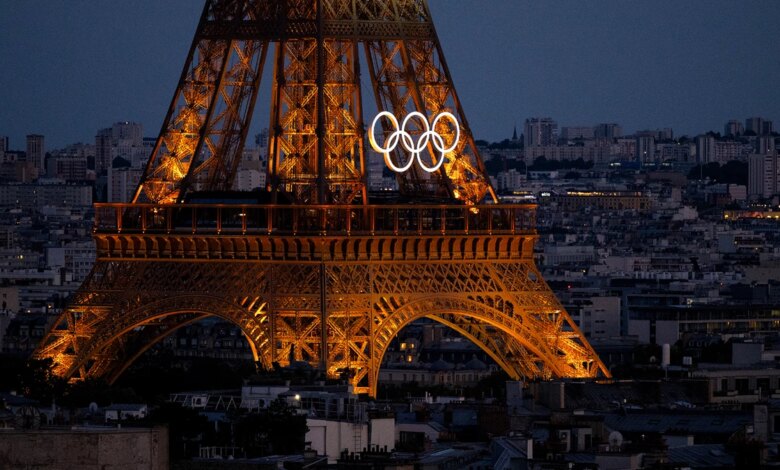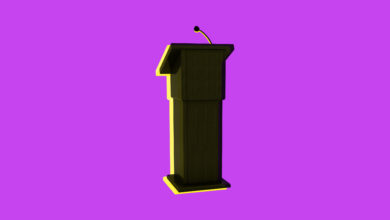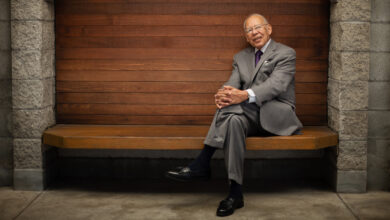Watching the Olympics as a French Christian

On Sunday, at the start of the second week of the Olympics, France won its 44th medal, surpassing its previous record total for a modern Olympics. Few might have predicted either the country’s extraordinary athletic success or the this national joy, which seemed in short supply after contentious snap national elections in June and July.
But for some French Christians, negative feelings emerged again following the controversial opening ceremony. Erwan Cloarec, president of the Conseil National des Évangéliques de France (CNEF), noted this “distress” last week in a statement, adding that he and the director general of CNEF would be meeting with the Central Office of Religious Affairs at the Ministry of the Interior that day to advocate for a “secularism which makes room for everyone” and for “state guarantees that all, believers or not, will be respected in their essential convictions.”
Cloarec pointed out that many Christian ministries had spent months anticipating that the Olympics would offer them an opportunity to live out their faith to the thousands descending upon the city. Through Ensemble2024, evangelical congregations and ministries have organized community tournaments, a K-Pop worship service, an exhibition examining the intersections of body, sport, and spirituality, a day of surfing, and a praise festival, as well as handing out water bottles and hygienic products. They have also provided chaplains to athletes and offered opportunities for Christian athletes to share their testimonies.
“Let us see in the situation that has arisen a real opportunity to bear witness to our faith while the person of Christ has just been placed at the center of these games,” Cloraec stated. “Let us hear the cries of the heart and the need for reconciliation of our contemporaries, their quest for identity and belonging. They cry out in a pluralistic society; let us show them how to cry out louder to the one who invites them all to his table and offers true reconciliation, true identity and belonging.”
CT asked Cloarec to discuss French evangelical reaction to the opening ceremony, what he wants people to know about laïcité, and what he has loved about the Olympics this year.
How have you personally been a part of expressions of faith around the Olympics?
Ensemble2024 is really an evangelical Protestant initiative, but because of the spirit of the Olympic Games, we have connected with stakeholders of other faiths. There was an interfaith opening celebration in which I participated at the very beginning of the games. CNEF also attended another event that wasn’t an interreligious celebration, in that we didn’t have any type of religious service or acts but instead showcased the numerous religions in the city acting in service of the common good.
How did French evangelicals react to the Olympics’ opening ceremony?
People felt hurt and had a sense of being humiliated. I know that for many outside of France, the scene of the Lord’s Supper was wounding. There was this feeling that through this parody, this mockery of the Lord’s Supper, we were being targeted for our faith and that our faith was being mocked in a way, even if this wasn’t necessarily the real intention.
As the ceremony’s artistic director has explained—and we can accept—this wasn’t his intended meaning. But in any case, in the portrayal of this scene and the subversion of the Lord’s Supper in a contemporary and inclusive version, it felt as if certain symbols were being played with and Christianity was being targeted. So we reacted by acknowledging this feeling of humiliation that people felt and by denouncing the fact that in this ceremony there was an agenda to promote an ideology. Ideological propaganda wasn’t really appropriate during this ceremony.
How have any previous events informed the way in which French evangelicals responded to this one?
Obviously, this ceremony was quite unique. On the other hand, religious leaders and evangelical leaders in particular have been aware of what is referred to as the anti-separatism law of 2021 (renamed the Law to Uphold Republican Principles and the Fight Against Separatism). This law tightened the regulations for our churches and shifted France’s policy of laïcité [a distinctly French form of separation of church and state that has historically been viewed positively by French evangelicals] from a laïcité of freedom to a laïcité of surveillance.
This law brought new rules and regulations that make church organization more administratively complex, with new financial and legal constraints. So in this current moment, it’s possible that evangelicals, at least, are also expressing this larger, built-up feeling of despair that churches are being mistreated.
For our non-French readers, what is laïcité? Why did it come about?
What we call French-style secularism is indeed a specific system and one unfamiliar to those outside of France. The great fight we are waging is to ensure that secularism serves the objectives that it is called to serve—that is, freedom of conscience, freedom of worship, and freedom of religion.
To that end, French secularism should be at the service of religion. It is not there to repress it. It is there to allow everyone to believe freely or not to believe, to live as they wish according to their own values and according to their faith, with the possibility of sharing one’s faith or one’s atheism or whatever you want. The law guarantees it and has done so since the 1905 Law of Separation of Church and State.
This is the form of secularism that should prevail, but frequently, we have another reading of secularism that is sometimes used by the media or certain politicians. This other version would claim that secularism exists to return the exercise of worship to the private sphere, and ultimately to ensure that religion is seen as little as possible and is either hidden or silenced. So our fight is about the true system of secularism. Secularism is there to allow faith to express itself, including in the public space, without having to apologize for believing what we believe.
On a positive note, we appreciate the great freedom to express our faith that we evangelicals have experienced around the Olympics.
Are there aspects of secularism that we appreciate?
Basically, secularism is good if it is in the service of the fundamental freedom of worship.
One of the things that displeased us about the opening ceremony was that it had the blessing of the head of state and represented the Republic of France, which meant that it had to ensure that no citizen felt excluded or singled out. Secularism, which guarantees the neutrality of the state, is a strong value in France of the government. And yet, we had the feeling in this opening ceremony that the republic did not respect this principle of neutrality but instead targeted one religion in particular, notably by evoking the Last Supper.
If we defend the liberty of all, this includes artistic freedom, freedom of thought, and freedom to criticize Christianity. Demanding that believers should be free to defend their faith is consistent with affirming that non-believers can say what they think. They can criticize Christianity, Islam, or anything they want to in society.
This is a freedom that must be protected—to believe or not believe, to defend your faith or criticize faith. These are all necessary guarantees. But the opening ceremony of the Olympics is something different—it’s a ceremony representing the Republic of France, and in the name of the principle of neutrality, they need to be careful in this context to respect each person.
What have you loved about the games?
Outside of this unfortunate episode in the opening ceremony, by all other measures it was a creative success, and the Olympic Games, according to what I hear in the media, seem to be a success. So, as French people, we are proud that the games are running smoothly. In Paris, so many well-organized venues have been integrated among the city’s historic monuments. This is beautiful and remarkable. It is a well-oiled machine. We can be proud that the first week of these games has been a success for France.
We are proud and enthusiastic for swimmer Léon Marchand and judoka Teddy Riner. [Marchand won four individual gold medals and one relay bronze, and Riner earned gold medals in both individual and team judo.] We had a great first week!
Finally, all the Ensemble2024 stakeholders and participants are grateful for everything that is happening, the contacts we have made, the expressions of the gospel throughout the games, and the hope we have for beyond the Olympics.
With additional help by Kami Rice and Landry Ndikumasabo.




